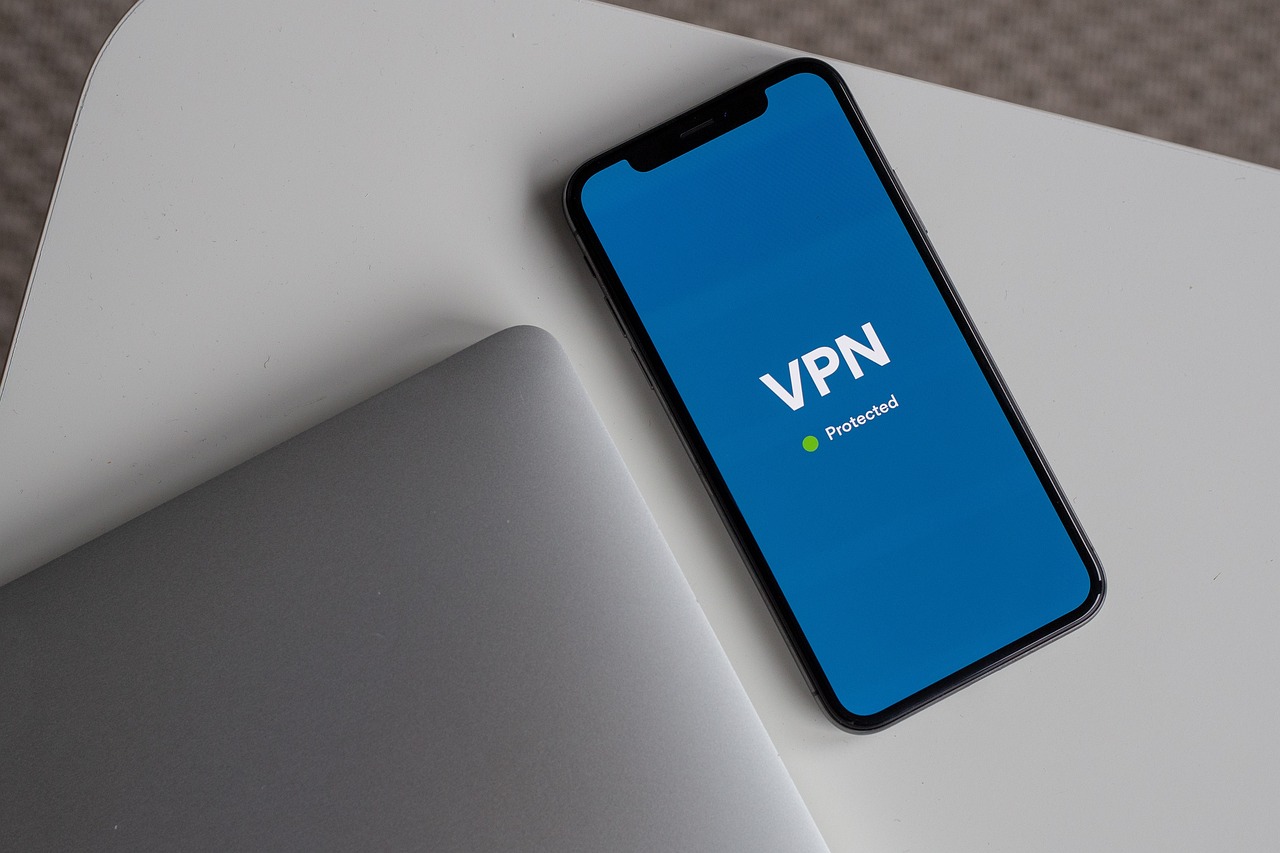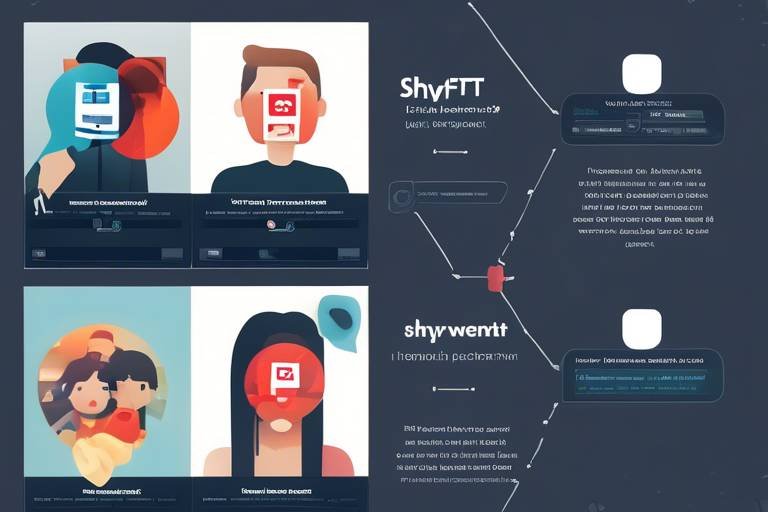Band Protocol - Decentralized Data Oracles
In the ever-evolving world of blockchain technology, data accessibility and reliability are paramount. Enter Band Protocol, a groundbreaking decentralized oracle network designed to bridge the gap between the world of smart contracts and the vast expanse of off-chain data. Imagine trying to make a decision without having all the necessary information at hand; it’s like navigating a ship without a compass. Band Protocol aims to provide that compass, ensuring that developers and users have access to accurate and real-time data, which is essential for the seamless operation of decentralized applications (dApps).
What sets Band Protocol apart from other oracle solutions? For starters, it operates on a decentralized model, meaning that it eliminates the risks associated with relying on a single source of truth. Just as you wouldn’t trust a single person’s account of an event without corroborating evidence, Band Protocol aggregates data from multiple sources to enhance accuracy and reliability. This decentralized approach not only boosts confidence in the data being provided but also fosters a more resilient ecosystem where no single entity can manipulate the information.
Furthermore, Band Protocol is designed with the future in mind. As the demand for decentralized finance (DeFi) applications continues to skyrocket, the need for robust and scalable data solutions becomes increasingly critical. Band Protocol addresses this need head-on, offering features that support cross-chain compatibility and scalability. This means that developers can tap into a broader range of data sources across various blockchain platforms, paving the way for innovative applications that can thrive in a multi-chain environment.
Moreover, the implications of integrating Band Protocol into the blockchain ecosystem are profound. By providing reliable data feeds, it enhances the functionality of DeFi applications, enabling them to operate more efficiently. Whether it’s for pricing assets, facilitating lending protocols, or executing trades, having access to trustworthy data is crucial. Think of it as the backbone of a well-structured building; without it, everything could come crashing down.
In conclusion, Band Protocol is not just another oracle solution; it is a vital component of the blockchain infrastructure that empowers developers and users alike. Its decentralized nature, combined with features like cross-chain compatibility and scalability, positions it as a leader in the field. As we continue to explore the potential of blockchain technology, Band Protocol stands out as a beacon of reliability and innovation, ensuring that data is not just accessible but also trustworthy.
- What is Band Protocol? Band Protocol is a decentralized oracle network that connects smart contracts with off-chain data sources.
- How does Band Protocol ensure data reliability? It aggregates data from multiple sources, minimizing the risk of manipulation and inaccuracies.
- Why is cross-chain compatibility important? It allows developers to access a wider range of data sources across different blockchain platforms, enhancing interoperability.
- What are the benefits of using Band Protocol? Benefits include enhanced data integrity, reduced reliance on centralized providers, and improved data retrieval efficiency.

Understanding Decentralized Oracles
Decentralized oracles serve as the vital link between the blockchain world and real-world data, acting like a bridge that connects two distinct realms. Think of them as translators that convert off-chain information into a format that on-chain smart contracts can understand. In a world where data drives decisions, the importance of accurate and reliable information cannot be overstated. Without oracles, smart contracts would be like ships lost at sea, unable to navigate the waters of external data.
So, what exactly do decentralized oracles do? They fetch, verify, and transmit data from outside the blockchain to smart contracts, ensuring that the information used in decision-making processes is both accurate and timely. This capability is crucial for various applications, especially in sectors like finance, supply chain, and insurance, where decisions are heavily reliant on real-time data. Imagine trying to trade stocks without knowing their current prices; that's the kind of chaos that can ensue without reliable data feeds.
One of the standout features of decentralized oracles is their ability to eliminate the risks associated with centralized data providers. Centralized oracles can be vulnerable to manipulation, inaccuracies, and single points of failure. By contrast, decentralized oracles distribute data sourcing across multiple nodes, enhancing security and trustworthiness. This decentralized approach ensures that even if one node fails or provides incorrect information, the overall system remains intact and reliable.
To illustrate the importance of decentralized oracles, consider the following scenarios where they play a critical role:
- Decentralized Finance (DeFi): In DeFi applications, accurate price feeds are essential for lending, trading, and liquidity provision. A decentralized oracle can aggregate data from multiple sources, ensuring that the price information is accurate and up-to-date.
- Insurance Contracts: Smart contracts in insurance rely on real-world events, such as weather conditions or flight statuses. Decentralized oracles can provide reliable data feeds that trigger payouts automatically when predefined conditions are met.
- Supply Chain Management: Tracking goods from origin to destination requires real-time data. Decentralized oracles can provide visibility into the supply chain, ensuring all stakeholders have access to accurate information.
In summary, decentralized oracles are essential components of the blockchain ecosystem, providing a necessary layer of connectivity between smart contracts and the real world. They enhance the functionality of blockchain applications by ensuring that accurate and reliable data is always at hand, thereby paving the way for a more trustworthy decentralized environment. As we continue to explore the capabilities of Band Protocol, it becomes clear how these oracles contribute to enhancing data accessibility and reliability across various industries.

Key Features of Band Protocol
Band Protocol stands out in the crowded field of decentralized oracles due to its unique and robust features. One of the most compelling aspects is its cross-chain compatibility. This means that Band Protocol can seamlessly operate across multiple blockchain platforms, allowing developers to tap into a vast pool of data sources and services. Imagine being able to access a rich tapestry of information from various blockchains without the hassle of switching between them; that's the power of Band Protocol!
Moreover, scalability is another cornerstone of Band Protocol's architecture. In a world where data requests can skyrocket, Band Protocol employs innovative techniques that ensure it can handle a growing number of requests without sacrificing performance or security. Think of it as a well-oiled machine that can adapt to increasing demands while maintaining its efficiency. This scalability is crucial, especially in high-volume environments like decentralized finance (DeFi), where timely and accurate data is paramount.
The secure data governance model implemented by Band Protocol is yet another feature that enhances its utility. This model not only ensures the integrity of the data being processed but also fosters trust among users. In a decentralized ecosystem, where data manipulation can lead to significant losses, having a robust governance framework is essential. Band Protocol's design minimizes these risks, making it a reliable choice for developers and users alike.
To summarize, here are the key features that make Band Protocol a formidable player in the decentralized oracle space:
- Cross-Chain Compatibility: Facilitates seamless integration across multiple blockchains.
- Scalability: Handles a growing number of data requests efficiently.
- Secure Data Governance: Ensures data integrity and fosters user trust.
These features collectively enhance Band Protocol's effectiveness as a decentralized oracle solution, making it an essential tool for developers looking to innovate in the blockchain space. As the demand for reliable, real-time data continues to grow, Band Protocol is poised to play a pivotal role in shaping the future of decentralized applications.
Q1: What is Band Protocol?
A1: Band Protocol is a decentralized oracle network that connects smart contracts with real-world data, enabling them to function effectively and securely.
Q2: How does Band Protocol ensure data integrity?
A2: Band Protocol employs a decentralized architecture, which significantly minimizes the risk of data manipulation and enhances trust among users.
Q3: What are the benefits of using Band Protocol in DeFi applications?
A3: Using Band Protocol in DeFi applications provides reliable data feeds necessary for pricing, lending, and trading mechanisms, enhancing overall efficiency and reliability.
Q4: Can Band Protocol integrate with any blockchain?
A4: Yes, Band Protocol is designed to connect with various blockchains, making it a versatile choice for developers.

Cross-Chain Compatibility
When we talk about , we're diving into one of the most exciting features of Band Protocol. Imagine a world where different blockchain networks can communicate seamlessly, just like how we chat with friends across different messaging apps. Band Protocol makes this dream a reality by allowing data to flow smoothly between various blockchain platforms. This capability is a game changer for developers who want to tap into a broader spectrum of data sources and services without being locked into a single blockchain ecosystem.
The beauty of Band Protocol's cross-chain functionality lies in its ability to enhance interoperability. Developers can now create decentralized applications (dApps) that pull data from multiple chains, opening up a treasure trove of possibilities. For instance, a DeFi application built on Ethereum could access real-time price feeds from the Binance Smart Chain, all thanks to Band Protocol’s innovative architecture. This means that users can benefit from the best data available, regardless of which blockchain it originates from.
Moreover, the integration of various blockchains through Band Protocol isn't just about accessing more data; it's about creating a more connected and efficient blockchain ecosystem. This cross-chain capability facilitates the creation of hybrid applications that can leverage the unique strengths of multiple blockchains. For example, an application could utilize the security features of Bitcoin while also benefiting from the smart contract functionality of Ethereum. With Band Protocol, the possibilities are endless, and that's what makes it so exciting!
To illustrate the impact of Band Protocol's cross-chain compatibility, let's consider a few key benefits:
- Wider Data Access: Developers can integrate diverse data sources, enhancing the functionality of their applications.
- Enhanced User Experience: By accessing real-time data from multiple chains, applications can provide users with timely and accurate information.
- Increased Innovation: The ability to combine features from different blockchains fosters creativity and innovation in dApp development.
In summary, Band Protocol's cross-chain compatibility is not just a feature; it's a fundamental shift in how we think about blockchain technology. It empowers developers to create more robust, versatile applications that can thrive in a multi-chain world. As we move forward, this capability will undoubtedly play a pivotal role in shaping the future of decentralized applications, making them more interconnected and powerful than ever before.

Integration with Various Blockchains
Band Protocol stands out in the blockchain ecosystem by its ability to seamlessly integrate with a variety of blockchain platforms. This versatility is a game-changer for developers who are eager to harness real-world data within their decentralized applications (dApps). Imagine being able to pull data from multiple sources without being tied to a single blockchain; that's the freedom Band Protocol offers!
In today's rapidly evolving digital landscape, the importance of interoperability cannot be overstated. Band Protocol's architecture is designed to communicate with various blockchains, including Ethereum, Binance Smart Chain, and others. This allows developers to choose the blockchain that best fits their project's needs while still accessing a rich array of data feeds. The result? A more dynamic and responsive dApp that can adapt to the demands of its users.
Moreover, the integration capabilities of Band Protocol enhance the functionality of decentralized finance (DeFi) applications. For instance, a DeFi platform utilizing Band Protocol can access real-time pricing data from multiple exchanges, ensuring users receive the most accurate information for their trading activities. This not only boosts user confidence but also enhances the overall efficiency of the platform.
To illustrate this, consider the following table that highlights some of the key blockchains Band Protocol integrates with and the types of data they can provide:
| Blockchain | Data Types |
|---|---|
| Ethereum | Price feeds, event data, and token information |
| Binance Smart Chain | Market prices, liquidity data, and transaction metrics |
| Polkadot | Cross-chain data, governance metrics, and staking information |
This table is just a glimpse of the potential that Band Protocol unlocks. By fostering a robust connection between various blockchains, it empowers developers to create more sophisticated and reliable applications. In a world where data is king, having access to a diverse range of information sources can make all the difference in the success of a decentralized application. So, whether you're building a new DeFi project or enhancing an existing one, Band Protocol's integration capabilities are a crucial asset to consider.
- What is Band Protocol? Band Protocol is a decentralized oracle network that connects on-chain smart contracts with off-chain data sources.
- How does Band Protocol ensure data integrity? It employs a decentralized architecture, which minimizes risks of data manipulation and enhances trust.
- Can Band Protocol be used in various blockchain ecosystems? Yes, Band Protocol is designed to integrate with multiple blockchains, providing flexibility for developers.
- What types of data can Band Protocol provide? It can provide price feeds, event data, and various metrics depending on the integrated blockchain.

Impact on DeFi Applications
Decentralized Finance, or DeFi, has taken the blockchain world by storm, and the impact of Band Protocol on this burgeoning sector is nothing short of revolutionary. Imagine a world where financial services are not just limited to traditional banks but are accessible to anyone with an internet connection. This is the promise of DeFi, and Band Protocol plays a pivotal role in making that promise a reality.
One of the primary ways Band Protocol enhances DeFi applications is through its ability to provide real-time data feeds. In the fast-paced world of finance, having accurate and timely information is crucial. Whether it's the latest price of cryptocurrencies, interest rates, or market trends, Band Protocol ensures that decentralized applications (dApps) can access this vital data seamlessly. This capability is essential for various DeFi functionalities, such as:
- Pricing Mechanisms: Accurate pricing data is fundamental for trading platforms and automated market makers (AMMs) to function effectively.
- Lending and Borrowing: DeFi lending platforms rely on up-to-date collateral valuations to determine loan amounts and interest rates.
- Yield Farming: Investors need reliable data to make informed decisions about where to stake their assets for maximum returns.
Moreover, Band Protocol's cross-chain compatibility allows DeFi applications to tap into data from multiple blockchains. This means that developers can create more sophisticated financial products that can interact with different ecosystems. For instance, a DeFi application could utilize data from Ethereum, Binance Smart Chain, and Solana all at once, providing users with a richer, more diverse set of options.
Another significant impact of Band Protocol on DeFi is its contribution to risk management. By decentralizing data sources, it reduces reliance on any single provider, which can be a bottleneck or a point of failure. This decentralization fosters a more resilient financial ecosystem where data inaccuracies or outages from one source won't cripple an entire application. In essence, it creates a safety net that enhances the overall trustworthiness of DeFi platforms.
To summarize, the impact of Band Protocol on DeFi applications can be viewed through several lenses:
| Aspect | Impact |
|---|---|
| Data Accuracy | Provides real-time, reliable data feeds for pricing and valuation. |
| Cross-Chain Functionality | Enables integration across multiple blockchains, enhancing product offerings. |
| Decentralization | Reduces risks associated with centralized data sources, improving trust. |
| Market Efficiency | Facilitates quicker decision-making and enhances user experience. |
In conclusion, Band Protocol is not just another player in the DeFi space; it is a game changer. By providing the necessary infrastructure for reliable data access, it empowers developers to build innovative financial solutions that can operate independently of traditional systems. As the DeFi landscape continues to evolve, Band Protocol will undoubtedly remain at the forefront, driving the next wave of financial innovation.
What is Band Protocol?
Band Protocol is a decentralized oracle network that connects smart contracts with real-world data, ensuring that blockchain applications can access reliable information.
How does Band Protocol enhance DeFi applications?
By providing accurate, real-time data feeds and enabling cross-chain compatibility, Band Protocol enhances the functionality and reliability of DeFi applications.
Why is decentralization important in data oracles?
Decentralization minimizes the risk of data manipulation and single points of failure, fostering trust and security in the data provided to dApps.
Can Band Protocol integrate with multiple blockchains?
Yes, Band Protocol is designed to be cross-chain compatible, allowing it to connect and provide data across various blockchain platforms.

Scalability Solutions
When it comes to blockchain technology, scalability is often the elephant in the room. Imagine trying to throw a massive party, but your venue can only hold a handful of guests. That's the challenge many blockchain networks face when dealing with increasing data requests. Band Protocol addresses this issue head-on with a suite of innovative solutions designed to ensure that it can handle a growing number of data requests without compromising performance or security.
One of the standout features of Band Protocol is its ability to process data requests efficiently. It employs a unique architecture that allows it to scale horizontally, meaning it can add more nodes to its network to accommodate increased demand. This is akin to adding more tables and chairs to your party venue as more guests arrive, ensuring everyone has a place to sit and enjoy the festivities.
Moreover, Band Protocol utilizes delegated proof-of-stake (DPoS), which not only enhances its scalability but also boosts its overall security. In a DPoS system, stakeholders can vote for delegates who will validate transactions and manage the network. This mechanism reduces the load on any single node, distributing the workload across multiple validators. Think of it as having a team of party planners instead of just one – each planner has their responsibilities, making the entire event run more smoothly.
Additionally, Band Protocol supports batch processing of data requests. This feature allows multiple requests to be bundled together and processed simultaneously, drastically reducing the time it takes to retrieve and deliver data. It's similar to a restaurant serving a large table of customers with a single order instead of taking each order one by one. This efficiency is crucial, especially in real-time applications where speed is of the essence.
To illustrate the effectiveness of Band Protocol's scalability solutions, consider the following table that compares traditional data retrieval methods with Band Protocol's approach:
| Feature | Traditional Methods | Band Protocol |
|---|---|---|
| Data Processing Speed | Slow, often congested | Fast and efficient |
| Node Load Balancing | Single point of failure | Distributed across multiple validators |
| Batch Processing | Limited | Highly efficient |
| Security | Vulnerable to attacks | Enhanced through DPoS |
In conclusion, Band Protocol's scalability solutions are not just about keeping up with the times; they are about future-proofing the network. As the demand for decentralized applications continues to rise, Band Protocol stands ready to meet those needs with innovative strategies that ensure reliability and performance. So, whether you're a developer looking to integrate real-world data into your applications or a user seeking a seamless experience, Band Protocol is paving the way for a more scalable and efficient blockchain ecosystem.
- What is Band Protocol?
Band Protocol is a decentralized oracle network that connects smart contracts with real-world data, enhancing the functionality of blockchain applications. - How does Band Protocol ensure data accuracy?
By utilizing a decentralized network of validators, Band Protocol minimizes the risk of data manipulation and enhances trust among users. - Can Band Protocol be integrated with any blockchain?
Yes, Band Protocol is designed for cross-chain compatibility, allowing it to work seamlessly with various blockchain platforms. - What are the benefits of using Band Protocol for DeFi applications?
Band Protocol provides reliable data feeds essential for pricing, lending, and trading mechanisms, significantly enhancing the functionality of DeFi applications.

Benefits of Using Band Protocol
Utilizing Band Protocol provides numerous advantages that can significantly enhance the functionality and reliability of decentralized applications. One of the most compelling benefits is the enhanced data integrity that comes from its decentralized architecture. In a world where data manipulation can lead to catastrophic consequences, Band Protocol ensures that the information fed into smart contracts is accurate and trustworthy. This is achieved through a network of independent validators who verify data before it reaches the blockchain, thereby creating a robust safeguard against inaccuracies.
Moreover, Band Protocol reduces reliance on centralized data providers. Traditional data services often present a single point of failure; if they go down or are compromised, the applications that depend on them can be severely affected. By leveraging a decentralized network, Band Protocol minimizes these risks. The distributed nature of the protocol means that even if one node fails, the rest of the network continues to function seamlessly, providing uninterrupted access to critical data.
The overall efficiency of data retrieval is also significantly improved with Band Protocol. In conventional systems, fetching data can be a slow and cumbersome process, often requiring multiple intermediaries that introduce latency. Band Protocol streamlines this by allowing direct access to data sources, which not only speeds up the process but also reduces costs. With faster data retrieval, decentralized applications can operate more smoothly, enhancing user experience and engagement.
Another noteworthy benefit is the flexibility that Band Protocol offers developers. The ability to integrate with various blockchains means that developers are not locked into a single ecosystem. This cross-chain compatibility enables them to tap into a broader range of data sources and services, fostering innovation and creativity in application development. Imagine being able to pull data from multiple blockchains effortlessly; it opens up a world of possibilities for building applications that are not only functional but also highly adaptable to changing market needs.
To summarize, the benefits of using Band Protocol can be encapsulated in the following key points:
- Data Integrity: High levels of accuracy and trustworthiness through decentralized validation.
- Reduced Centralization Risks: Minimized vulnerabilities associated with traditional data providers.
- Improved Efficiency: Faster data retrieval with lower costs.
- Flexibility: Cross-chain compatibility allowing integration with various blockchains.
Q1: What is Band Protocol?
A1: Band Protocol is a decentralized oracle network that connects on-chain smart contracts with off-chain data sources, ensuring reliable and accurate data is available for various applications.
Q2: How does Band Protocol ensure data integrity?
A2: Band Protocol maintains data integrity through a decentralized network of validators who verify data before it is fed into the blockchain, minimizing the risk of manipulation.
Q3: Can Band Protocol be used with multiple blockchains?
A3: Yes, Band Protocol is designed to be cross-chain compatible, allowing developers to integrate it with various blockchain platforms for enhanced interoperability.
Q4: What are the implications of using Band Protocol in DeFi applications?
A4: Band Protocol enhances decentralized finance applications by providing reliable data feeds necessary for pricing, lending, and trading mechanisms, thus improving their overall functionality.

Data Integrity and Security
This article explores Band Protocol, a decentralized oracle network, its functionalities, benefits, and implications for the blockchain ecosystem, as well as its role in enhancing data accessibility and reliability.
Decentralized oracles play a crucial role in blockchain technology by bridging the gap between on-chain smart contracts and off-chain data sources, ensuring that accurate information is available for decision-making processes.
Band Protocol offers unique features such as cross-chain compatibility, scalability, and a secure data governance model, which collectively enhance its utility and effectiveness as a decentralized oracle solution.
The ability of Band Protocol to function across multiple blockchain platforms facilitates seamless data integration, allowing developers to access a wider range of data sources and services, thereby enhancing interoperability.
Band Protocol’s design enables it to connect with various blockchains, making it a versatile choice for developers looking to incorporate real-world data into their decentralized applications.
The cross-chain capabilities of Band Protocol significantly enhance decentralized finance (DeFi) applications by providing reliable data feeds necessary for pricing, lending, and trading mechanisms.
Scalability is vital for any blockchain solution; Band Protocol employs innovative techniques ensuring that it can handle a growing number of data requests without compromising performance or security.
Utilizing Band Protocol provides numerous advantages, including enhanced data integrity, reduced reliance on centralized data providers, and improved overall efficiency in data retrieval for decentralized applications.
One of the most significant advantages of Band Protocol is its commitment to . In a world where information can be easily manipulated, Band Protocol stands as a beacon of trust. By utilizing a decentralized network, it ensures that data is not only accurate but also resistant to tampering. This is achieved through a combination of cryptographic techniques and a consensus mechanism that verifies the authenticity of the data before it reaches the smart contracts.
The architecture of Band Protocol minimizes the risk of data manipulation in several ways:
- Decentralization: Unlike traditional data providers that operate from a single point, Band Protocol distributes the data across multiple nodes. This means that even if one node is compromised, the integrity of the data remains intact.
- Consensus Mechanism: The protocol employs a robust consensus mechanism that requires multiple nodes to validate data before it is accepted. This drastically reduces the chances of erroneous or malicious data being used.
- Transparency: All data transactions are recorded on the blockchain, providing a transparent trail that can be audited at any time. This transparency fosters trust among users and developers alike.
Moreover, the security measures in place are designed to protect against various vulnerabilities that plague centralized systems. By reducing the reliance on a single source of truth, Band Protocol not only enhances data integrity but also builds a resilient ecosystem that is less susceptible to attacks and failures.
In conclusion, Band Protocol is not just another oracle solution; it is a fortress of data integrity and security in the decentralized landscape. By ensuring that the data flowing into smart contracts is both reliable and secure, it empowers developers to create applications that users can trust.
Q1: What is Band Protocol?
A: Band Protocol is a decentralized oracle network that connects smart contracts with real-world data, ensuring that accurate information is available for blockchain applications.
Q2: How does Band Protocol ensure data integrity?
A: Band Protocol utilizes a decentralized architecture and a consensus mechanism that requires multiple nodes to validate data, minimizing the risk of manipulation.
Q3: Can Band Protocol integrate with different blockchains?
A: Yes, Band Protocol is designed to be cross-chain compatible, allowing it to connect with various blockchain platforms seamlessly.
Q4: What are the benefits of using Band Protocol?
A: Key benefits include enhanced data integrity, reduced reliance on centralized data providers, and improved efficiency in data retrieval for decentralized applications.

Reducing Centralization Risks
This article explores Band Protocol, a decentralized oracle network, its functionalities, benefits, and implications for the blockchain ecosystem, as well as its role in enhancing data accessibility and reliability.
Decentralized oracles play a crucial role in blockchain technology by bridging the gap between on-chain smart contracts and off-chain data sources, ensuring that accurate information is available for decision-making processes.
Band Protocol offers unique features such as cross-chain compatibility, scalability, and a secure data governance model, which collectively enhance its utility and effectiveness as a decentralized oracle solution.
The ability of Band Protocol to function across multiple blockchain platforms facilitates seamless data integration, allowing developers to access a wider range of data sources and services, thereby enhancing interoperability.
Band Protocol’s design enables it to connect with various blockchains, making it a versatile choice for developers looking to incorporate real-world data into their decentralized applications.
The cross-chain capabilities of Band Protocol significantly enhance decentralized finance (DeFi) applications by providing reliable data feeds necessary for pricing, lending, and trading mechanisms.
Scalability is vital for any blockchain solution; Band Protocol employs innovative techniques ensuring that it can handle a growing number of data requests without compromising performance or security.
Utilizing Band Protocol provides numerous advantages, including enhanced data integrity, reduced reliance on centralized data providers, and improved overall efficiency in data retrieval for decentralized applications.
Band Protocol ensures high levels of data integrity and security through its decentralized architecture, which minimizes the risk of data manipulation and enhances trust among users.
In the world of blockchain technology, centralization can be a double-edged sword. While centralized systems offer simplicity and ease of use, they also come with significant risks, such as single points of failure and data inaccuracies. Band Protocol tackles these challenges head-on by leveraging a decentralized network architecture that distributes data retrieval tasks across multiple nodes. This means that no single entity has control over the data, which significantly reduces the risks associated with centralized data providers.
Imagine a library where every book is stored in a single room. If that room were to catch fire, all the knowledge would be lost in an instant. Now, consider a library where books are spread across multiple locations. Even if one location is compromised, the information remains safe in other places. This analogy illustrates how Band Protocol enhances data reliability by decentralizing data sources.
Furthermore, the decentralized nature of Band Protocol allows for greater transparency and accountability. Each data request and response is recorded on the blockchain, providing an immutable audit trail that users can trust. This not only builds confidence among users but also encourages a more collaborative environment where data integrity is paramount.
By utilizing Band Protocol, developers can create applications that are inherently more resilient against attacks and failures. The network's architecture ensures that even if one node goes offline, the rest can continue to function seamlessly, providing a reliable flow of data. In a world where data is king, having a robust and decentralized system like Band Protocol means that applications can thrive without the looming threat of centralization.
- What is Band Protocol? Band Protocol is a decentralized oracle network that connects smart contracts with real-world data.
- How does Band Protocol enhance data security? It employs a decentralized architecture that minimizes risks associated with data manipulation and centralization.
- Can Band Protocol work with multiple blockchain platforms? Yes, it is designed for cross-chain compatibility, allowing integration with various blockchain ecosystems.
- What are the benefits of using Band Protocol for DeFi applications? It provides reliable data feeds essential for pricing, lending, and trading mechanisms in DeFi.
Frequently Asked Questions
- What is Band Protocol?
Band Protocol is a decentralized oracle network that connects smart contracts with real-world data. By acting as a bridge between on-chain and off-chain data sources, it ensures that blockchain applications have access to accurate and reliable information.
- How does Band Protocol enhance data accessibility?
By enabling cross-chain compatibility, Band Protocol allows developers to integrate a wide range of data sources into their decentralized applications. This flexibility means that users can access diverse and reliable data feeds, which is crucial for applications in various sectors, especially in DeFi.
- What are the key features of Band Protocol?
Band Protocol boasts several unique features, including cross-chain compatibility, scalability, and a secure data governance model. These features work together to enhance its utility as a decentralized oracle solution, making it a preferred choice for developers.
- Why is scalability important for Band Protocol?
Scalability is vital because it allows Band Protocol to handle an increasing number of data requests without sacrificing performance or security. This ensures that as more users and applications rely on its services, the network can continue to function smoothly.
- How does Band Protocol ensure data integrity?
Band Protocol maintains high levels of data integrity by utilizing a decentralized architecture. This structure minimizes the risk of data manipulation and enhances trust among users, ensuring that the information provided is accurate and reliable.
- What are the benefits of using Band Protocol?
Utilizing Band Protocol offers numerous advantages, such as enhanced data integrity, reduced reliance on centralized data providers, and improved efficiency in data retrieval. These benefits contribute to a more robust and trustworthy blockchain ecosystem.
- How does Band Protocol reduce centralization risks?
By leveraging a decentralized network, Band Protocol significantly reduces the risks associated with centralized data providers. This is crucial because centralized systems can be vulnerable to failures and inaccuracies, which can compromise the integrity of the data used in blockchain applications.
- Can Band Protocol be integrated with multiple blockchains?
Yes, Band Protocol is designed to connect with various blockchain platforms, making it a versatile choice for developers. This capability allows for seamless data integration across different ecosystems, enhancing interoperability.
- What impact does Band Protocol have on DeFi applications?
Band Protocol significantly enhances decentralized finance (DeFi) applications by providing reliable data feeds necessary for pricing, lending, and trading mechanisms. This reliability is essential for the functioning and trustworthiness of DeFi services.



















